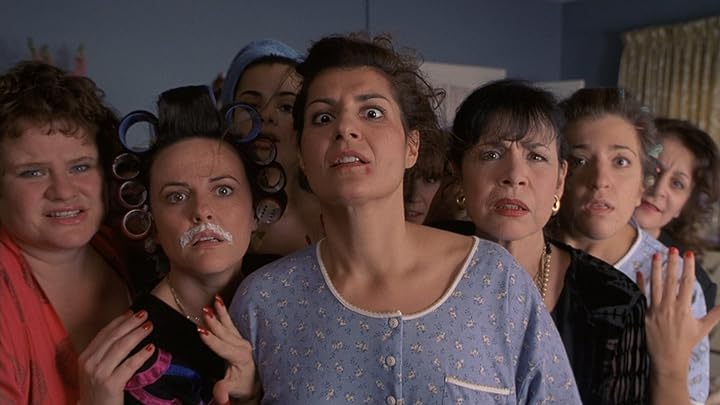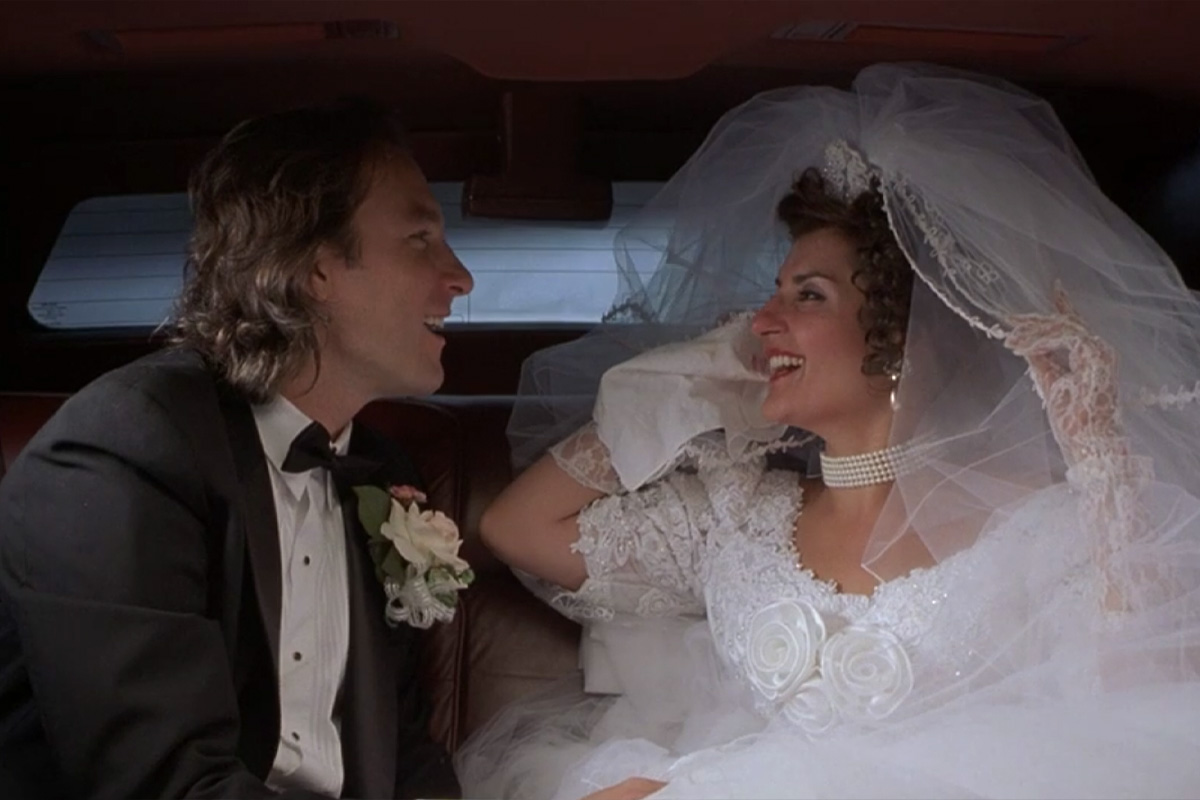‘My Big Fat Greek Wedding’ is a delightful romantic comedy film that captures the essence of cultural nuances and the comedic challenges that arise when two distinct families intertwine. At its core, the Joel Zwick directorial tells the story of Toula Portokalos, a Greek-American woman, and her whirlwind romance with Ian Miller, a non-Greek man. Their journey of love, acceptance, and the inevitable cultural clashes form the crux of the narrative. The performances of the ensemble cast, including Nia Vardalos as Toula Portokalos and John Corbett as Ian, breathe life into the characters, making them both relatable and endearing.
One of the main reasons for the 2002 film’s monumental success is its universal appeal, which further led to the film spawning a series titled ‘My Big Fat Greek Life,’ and two additional film installments ‘My Big Fat Greek Wedding 2’ and ‘My Big Fat Greek Wedding 3.’ Audiences across the globe could relate to the familial dynamics, the cultural quirks, and the genuine love story at its heart. This relatability led many to wonder whether the story might have roots in real-life events.
My Big Fat Greek Wedding is Based on Writer’s Personal Experiences
The film’s narrative is deeply rooted in the personal experiences of its writer and lead actress, Antonia Eugenia Vardalos AKA Nia, who is of Greek and Canadian descent. Drawing inspiration from her own life, Vardalos crafted a story that resonated with many, showcasing the challenges and joys of merging two distinct cultures within the context of a romantic relationship. The character of Toula mirrors Vardalos in many ways, especially in her journey of self-discovery and acceptance amidst familial expectations and cultural traditions.

Just as Toula marries a non-Greek man in the movie, in real life, Nia Vardalos married actor Ian Gomez, who is not of Greek descent. Many of the characters in the film, especially Toula’s family members, are inspired by real people in Vardalos’ life. While their on-screen personas might be exaggerated for comedic effect, the essence of their personalities and their interactions are drawn from reality. The portrayal of a close-knit, boisterous Greek family is inspired by Vardalos’ own upbringing in a Greek family.
As admitted by the talented actor herself, the cultural quirks, traditions, and the emphasis on family are reflective of her personal experiences. The journey of ‘My Big Fat Greek Wedding’ from a mere concept to a cinematic sensation is a captivating tale of passion, perseverance, and fate. However, the journey wasn’t without its challenges. Early in her career, Nia faced difficulties primarily due to her Greek descent. The industry’s narrow perspective became evident when a Hollywood agent rejected her, attributing her Greek ethnicity as the reason. This setback, however, only fueled her determination.
In an interview with MovieMaker, Nia shared how she handled the rejection and used her experience with the agent to propel her forward. She said, “I was raised with comedy, so within twelve hours, it became a really good story that I was telling at parties — that my agent told me I wasn’t pretty enough to be a leading lady and not fat enough to be a character actor. I transformed that pain and anger into profound empathy, and it shaped the way I write female characters. I always depict positive female friendships.”
Inspired by her own life and experiences, Vardalos initially crafted the screenplay ‘My Big Fat Greek Wedding.’ But as she did not have the means to turn that screenplay into a movie, she created a solo show of the same name and jumped on stage in the summer of 1997. Her intimate performance in the stage show was a heartfelt portrayal, drawing from her personal encounters with culture, love, and family dynamics.

With its raw emotion and relatable narrative, the show began to create ripples in the entertainment industry. It wasn’t long before the stage performance caught the discerning eyes of actress Rita Wilson and her renowned husband, Tom Hanks. Both were deeply moved by Vardalos’ storytelling and saw immense potential in bringing this narrative to a broader audience. With their belief in the story’s universal appeal, they took the reins to produce the film adaptation. Their vision and dedication, combined with Vardalos’ authentic script, catapulted ‘My Big Fat Greek Wedding’ to the iconic status it enjoys today.
Nia Vardalos, in an interview with The Ringer, shared her insights on the film’s narrative, stating, “The story was to be told through Ian and Toula’s eyes, but it was about the family—the smothering, ever-suffocating, loving family.” She further added, “I wanted very, very much to not follow the standard romantic comedy formula of ‘he cheats on the girl and wins her back.’ I didn’t want them to break up, because the only villain in the screenplay was the world against Ian and Toula.” Vardalos also candidly mentioned her initial fears, revealing that she thought she might be replaced by a big star like Julia Roberts in the film adaptation.
Nia Vardalos’ commitment to authenticity and her decision to steer clear of clichéd romantic comedy tropes made the film stand out. She wanted the story to focus on the internal conflicts and the external pressures that multicultural couples often face, making it a tale that transcends cultural boundaries. While the 2002 movie incorporates elements of fiction for cinematic appeal, its foundation is deeply rooted in the real-life experiences of its creator, Nia Vardalos. Evidently, ‘My Big Fat Greek Wedding’ artfully blends reality with fiction to create a narrative that has touched the hearts of audiences worldwide.
Read More: Movies Like My Big Fat Greek Wedding

